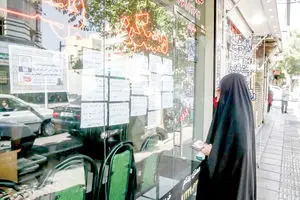Sudan's RSF traps el-Fasher inside network of earth walls
Sudan's RSF traps el-Fasher inside network of earth walls

Sudan’s paramilitary Rapid Support Forces (RSF) has constructed a network of earth walls around el-Fasher to prevent anyone from escaping the city, which has now been under siege for more than 500 days.
In a report published on Thursday, the Yale School of Public Health’s Humanitarian Research Lab (HRL) identified over 31km of berms that have steadily walled in the capital of North Darfur, which the RSF has had encircled since May 2024.
While hundreds of thousands of civilians have escaped el-Fasher since this siege began, Fikra, a Sudanese public policy organisation, estimates that there are still about 750,000 civilians trapped in the city itself.
Meanwhile, according to the United Nations, around 260,000 civilians - including 130,000 children - have no way out of Abu Shouk, the area’s main camp for internally displaced people.
“We have been watching civilian patterns of life in specific areas of el-Fasher for weeks now and the signals of civilian movement are growing less and less,” Nathaniel Raymond, executive director of the University of Yale’s Humanitarian Research Lab, told Middle East Eye.
“There are probably two reasons for this: one is that more and more people are dead or have attempted to leave. The second is that those who remain are deeper into hiding, often building bomb shelters in their homes.”
Raymond said the level of suffering civilians in el-Fasher were experiencing “is unmatched anywhere in the world today except potentially Gaza”. Famine conditions were confirmed in the area of el-Fasher over a year ago and desperate families have been consuming animal fodder and food waste to survive.
"The fact that there is anyone left is both a tragedy and a miracle all at once," Raymond said.
While the RSF controls the surrounding countryside and the northeast of el-Fasher itself - as well as what goes in and out of the city - its enemies, the Sudanese Armed Forces (SAF) and their allies, the Joint Forces militia, still hold the rest of it.
The construction of the berms is a sign that an already brutal siege is intensifying. Since it began in May last year, the UN has verified more than 1,100 grave human rights violations in el-Fasher alone, including the killing and maiming of over 1,000 children.
'With these berms, the RSF is creating a literal kill box around el-Fasher'
- Yale Humanitarian Research Lab
“With these berms, the RSF is creating a literal kill box around el-Fasher. These berms will create physical boundaries to prevent smuggling goods like food and medicine into el-Fasher or people out of el-Fasher,” the HRL said in its report.
“In the event of mass civilian exodus, including scaling [the berms] in desperation, RSF can easily kill civilians. RSF’s pattern of limiting who can escape, including harassment, robbery, abductions and in some cases extrajudicial execution continues.”
Walled in
War between the RSF and the Sudanese army broke out in April 2023 and has resulted in a humanitarian catastrophe, with almost 12 million people forced to leave their homes and, according to aid agencies who have spoken with MEE, a potential death toll in the hundreds of thousands.
The RSF has been accused of carrying out a genocide against Black civilians in Darfur by the US government and international human rights groups. The paramilitary group controls almost all the vast western region of Sudan, with el-Fasher a notable exception.
'The UAE and the RSF should be pressured to end the el-Fasher siege and allow humanitarian aid delivery, or face real consequences'
- Amgad Fareid Eltayeb, Fikra
According to the HRL, which uses satellite imagery and thermal sensor data to produce its reports, the RSF has built the berms in segments since 9 May and is continuing to construct more, trapping the civilians left in el-Fasher and walling in the army’s 6th Division and the Joint Forces, which is made up of fighters from former Darfuri rebel groups.
From the west of el-Fasher to the north, the RSF has built an approximately 22km berm in the shape of a semicircle, while in August the paramilitary group constructed about 9km of berms encircling most of the east of the city.
According to the HRL, the southwest, south side and northeast of el-Fasher around al-Salaam camp are not currently enclosed by the network of berms. Earlier in the year, the RSF captured Zamzam, another camp for Sudanese people displaced in previous conflicts, killing over a thousand civilians.
Minefield
On Thursday night, eyewitnesses in el-Fasher reported that the army's allied Joint Forces had managed to kill two senior RSF commanders in a surprise attack on the paramilitary’s positions in the south of the city.
Local sources told MEE that there were exchanges of artillery fire and fierce fighting that calmed with the onset of rainfall. Muammar Ibrahim, a journalist in el-Fasher, said that the army had killed dozens of RSF fighters in a livestock market in the southwest of the city and taken important strategic positions nearby.
But sources in el-Fasher said the army's position is increasingly perilous.
The SAF’s 6th Division is now inside a garrison that occupies about four or five square miles around the airport, military sources told MEE. The barracks is surrounded by anti-personnel and anti-tank mines planted by the army over a year ago.
While the RSF does not have the technical expertise to breach this minefield, its patron, the United Arab Emirates (UAE), would be able to provide it with equipment that can.
The army's 6th Division, which began building one section of the berm later taken on by the RSF, is confined to its position. The Joint Forces, headquartered at the former African Union-United Nations Hybrid Operation in Darfur (Unamid) base, remains mobile.
International inaction
Amgad Fareid Eltayeb, director of Fikra, a Sudanese public policy organisation, told MEE that the "international community inaction" on el-Fasher was "disgraceful".
"We cannot accept normalising the RSF taking the citizens of el-Fasher hostage," he said. "The UAE and the RSF should be pressured to end the el-Fasher siege and allow humanitarian aid delivery, or face real consequences."
Though the UAE continues to deny its involvement, MEE has reported extensively on its sponsorship of the RSF, which includes a network of weapons supply routes.

"Enough has been said and the words have lost their meaning," said Eltayeb.
Kate Ferguson, founding director of the human rights group Protection Approaches, told MEE: "The story of el-Fasher and of the RSF's wider strategic assault on civilian areas across North Darfur has become one of collective international failure to protect people from the most heinous crimes."
Ferguson contrasted this failure with the international response to the mass killings carried out by the Janjaweed militias - the forerunners of the RSF - in Darfur in the first decade of the 21st century.
"Twenty years ago these same perpetrators sought to destroy the same populations," Ferguson said.
"Then, the world revolted and promised to 'save Darfur'... Today, we see a collective lack of ambition, solidarity and action for Darfur in the face of constant warning, escalation and atrocity."







